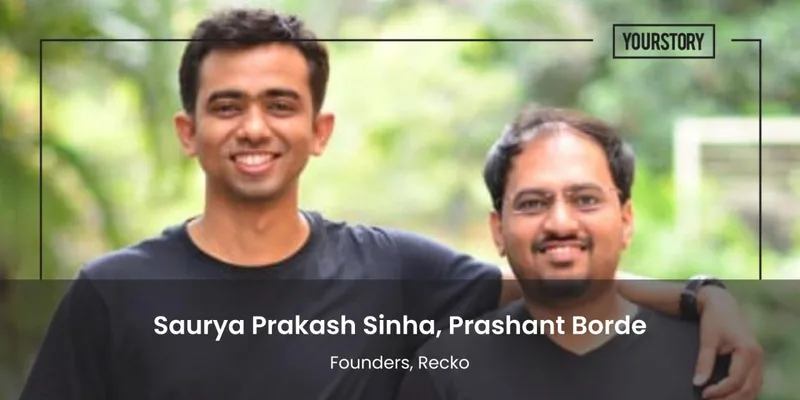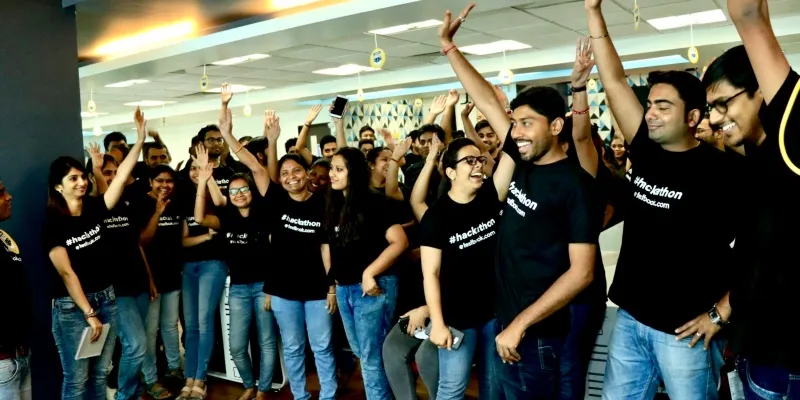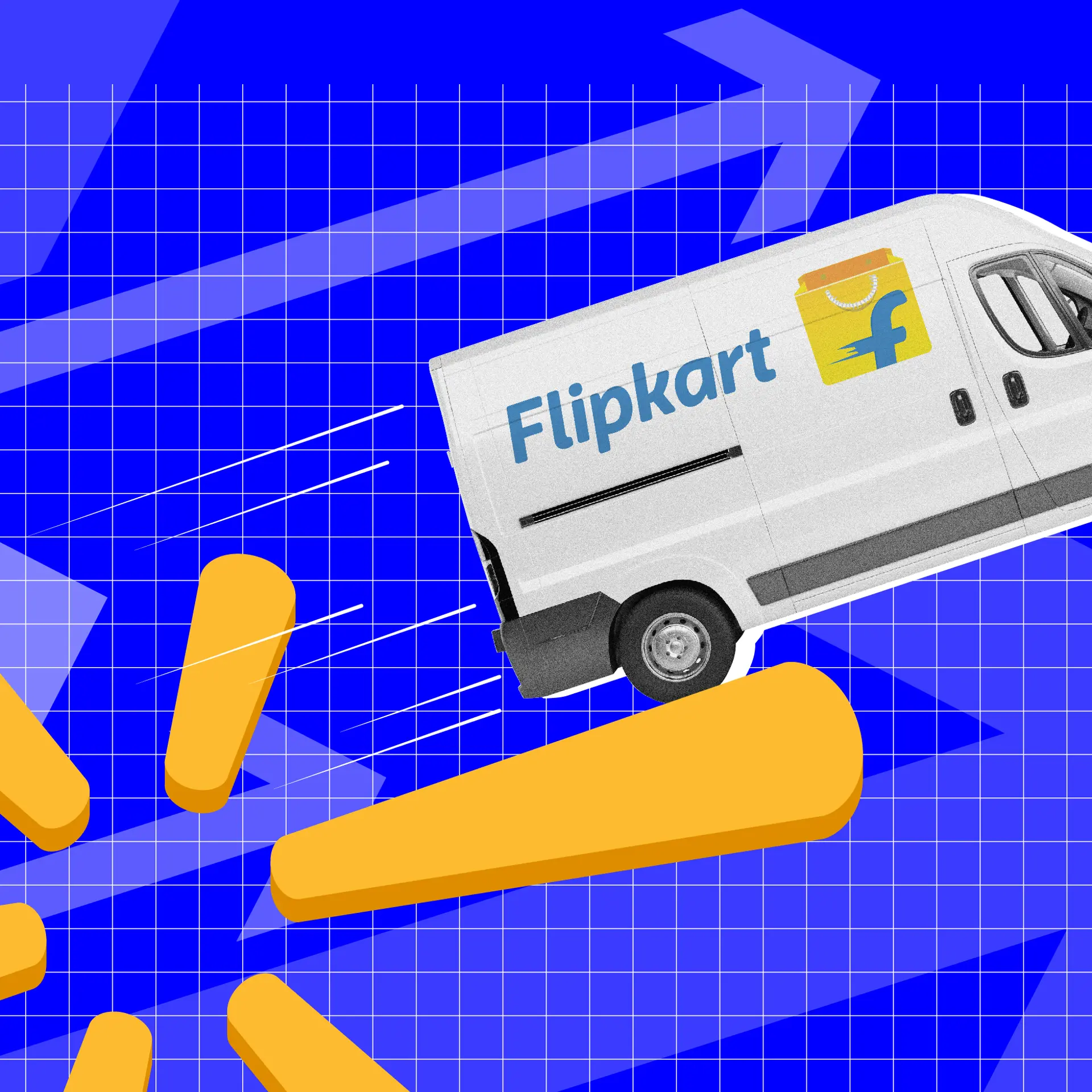[Year in Review 2021] From Dukaan to CredAble, top product roadmaps of the year
YourStory’s product roadmap series seeks to understand the whys and hows of a startup’s process of building its product to give readers a 360-degree view of a company functions. Here are the top stories from the series in 2021.
The year 2020 was a tough one for startups as the disruption caused by the pandemic forced many of them to pivot and change their business models. After surviving the pandemic, startups doubled down on their product strategies this year as well to address the challenges and avail the opportunities presented by COVID-19.
Several startups had to accelerate their product rollouts to deal with the changes in the consumer landscape and find newer revenue streams.
In YourStory’s weekly product roadmap series, we look beyond the startup pitches and unpack the whys and hows of the business.
As 2021 comes to an end, YourStory brings to you a list of the top 10 most-read product roadmaps of the year.
Dukaan powers merchants

Summit Shah
The COVID-19 pandemic shook up how things worked in India’s business ecosystem. Almost overnight, companies – both large and small – had to move online to keep operations running.
While large businesses had financial resources, digital know-how, as well as talent to smoothen the transition, smaller companies struggled to find the right resources.
This created the perfect opportunity for software-as-a-service (SaaS) players such as Bengaluru-based Dukaan that help businesses move online.
Founded in May 2020 by Suumit Shah, Subhash Choudhary, Anurag Meena, and Kaustub Pandey, allows anyone to set up an e-commerce website on its platform within 30 seconds of using the app.
With over 3.5 million sellers under 40 categories, the platform has processed more than 12 lakh orders since its inception.
Dukaan claims to have hit six million downloads on the app store within a year. The startup began monetising in early May and clocked its first revenue of over $44,000.
“We provide digital cataloguing, sales and inventory management, marketing tools, online payment gateway features, and pan-India delivery options. Our sellers are spread across over 40 domains, including restaurants, general stores, bakeries, meat shops, blue-collar services, electronics, fashion, etc,” Suumit says.
Dukaan competes with the likes of Sturish and Shopify.
Solving logistics financing hiccups

The CredAble Team
Successful businesses need a robust logistics network. However, the logistics sector itself usually faces a working capital crunch, with almost no quick financing options at its disposal.
To solve this pain point, Ram Kewalramani and Nirav Choksi started in 2017. The business-to-business (B2B) supply chain finance startup partners with corporate entities to provide a scalable supplier and dealer/distributor financing platform.
CredAble’s competitors include NeoGrowth Credit, Vivriti Capital, Shubh Loans, Happy Loans, Lendingkart, and Indifi Technologies.
The platform uses data from invoices to personalise working capital requirements. The idea is to allow a large number of suppliers to receive financing. This works because of two systems: a custom-built loan management system and a proprietary working capital fund optimiser. The first allows all lenders to participate on the platform; the other ensures optimal utilisation of funds for lenders as well as corporates.
The startup is now looking to expand to deep-tier finance with tokenisation, alternative financing structures for businesses, and trade finance.
Digital bookkeeping with OkCredit

Anyone who has ever had to keep track of how much money one owes to the local kirana shop knows how difficult it can be to tally the numbers. Shopkeepers have to manage hundreds of such informal records every day. The result is a chaotic system with multiple missed payments.
In 2017, IIT Kanpur alumni Aditya Prasad, Gaurav Kumar, and Harsh Pokharna launched OkCredit, an app that helps small merchants digitise bookkeeping. The app essentially helps these businesses on three fronts – productivity, cashflows, and relationships.
As of 2020, Bengaluru-based saw over 800 million transactions. More than 2.4 crore users are registered on the platform and it has over 5.5 lakh daily transacting users. Close to 15 percent of the active users on the platform are suppliers.
The digital bookkeeping segment currently has players such as Khatabook, Pagarbook, Lendingkart, Five Star Finance, and several others. However, Khatabook is in direct competition with OkCredit.
“As a company working to empower small businesses, we want to help them at every stage of their business cycle by helping them grow their profits, by going online and integrating with the growing digital economy. We have already taken some steps by launching OkShop and OkStaff by solving another set of pain points for some other businesses. Our intent is to empower the underserved SMBs by democratising access to technology and capital for them,” says Gaurav.
Simplifying digital transactions

The past few years have accelerated the digital economy. However, most organisations in the country still grapple with increasing transaction volumes and complex payment flows and systems.
Entrepreneurs Saurya Prakash Singh, and Prashant Borde realised that reconciliations are a cumbersome process for companies. It got them to start Bengaluru-based Recko in 2017.
Today, the fintech startup is helping customers across industries like banks, ecommerce, foodtech, fintech, neobanks, gaming, insurance providers, etc, which have a high volume of transactions, by automating their reconciliation process.
In the future, plans to add more modules like payouts calculation and scalable ledger. The payouts calculation module will help startups and mid-market companies have payouts set up without investing any time in its development. And the ledger module acts as a single source of truth for financial data.
In October this year, US-headquartered fintech startup , valued at $95 billion, acquired Recko for an undisclosed value.
Giving agtech a boost

Gramophone co-founders
India’s agriculture sector is massive, contributing 58 percent of employment for the country’s population. However, it lags in digital adoption.
Tauseef Khan and Nishant Mahatre, batchmates at IIT-Kharagpur and IIM-Ahmedabad, with a dream of using technology to solve the sector’s pain points, launched the Gramophone app in 2016.
The app, which has mapped over 2.5 million acres of agricultural land, helps farmers get personalised agri advice on crops, soil, weather, etc, and functions as a one-stop solution to achieve better crop yields.
Over the past five years, has built all three components — Gram Salah for farm management, providing personalised agronomic intelligence; Gram Uday for providing access to agri inputs to farmers; and Gram Vyapar, which enables post-harvest market linkages by bringing traders, commission agents, and processors on the same platform.
In 2021, Gramophone has a suite of products developed completely in-house. These include managing operations remotely via the Gram Konnect application, which is used by on-ground employees and partners (village representatives).
“We will enhance the capabilities of Gram Intel by integrating satellite imagery into the farm management product. Soil and crop nutrition have been a key element to increase farmer productivity,” Tauseef says.
Swiggy powers up its business

Image Source: Shutterstock
Before was a foodtech unicorn, it was just an idea: how to get users their favourite meals delivered at doorstep without other hassles like minimum order or delivery time.
With this idea, BITS Pilani graduates, Sriharhsa Majety and Nandan Reddy, and one IIT graduate, Rahul Jaimini, started Swiggy with six delivery partners in 2014. The six delivery partners have now crossed over 1,30,000 delivery partners (this was 2,20,000 delivery partners before the pandemic).
Rahul is no longer operationally a part of Swiggy.
“From 2014 to 2017, Swiggy focused on just one thing – solving for food delivery in different ways,” says Anuj Rathi, VP Product, Growth, and Revenue. He explains they had realised food was a category where demand outstrips supply (delivery partners and restaurants).
The Bengaluru-based company expanded to seven major cities between 2015 and 2017, and nine cities by the end of 2017. There was no looking back after that; Swiggy was operational in 50 cities by the end of 2018, 100 cities by March 2019, and 500 cities by December 2019.
Today, Swiggy works like a three-way marketplace: consumers, merchants, and delivery. “Most ecommerce plays work on a two-way marketplace model. The complexity for a product like Swiggy comes in because it is all being done real-time,” Anuj says.
Amidst COVID-19, the team added new features like temperature tracking, hygiene factors, and other elements.
Helping students prepare for exams

The Testbook team says 1.24 billion questions have been attempted on its website.
Close to 70 percent of government job aspirants in India come from Tier II, III, and IV cities, according to several media reports. Unfortunately, students from smaller towns do not have access to adequate tech resources to prepare for such competitive exams.
Spotting a demand and supply gap in the test prep market in the country, IIT alumni Ashutosh Kumar and Narendra Agrawal started Testbook in 2014. Manoj Munna and Praveen Agrawal later joined in as co-founders.
Today, the Mumbai-based startup helps students prepare for state and central government entrance exams with its online courses, mock tests, live coaching, etc. It uses gamification techniques to help students understand concepts better and rewards those who practice regularly for user retention.
Some of the top players in the space are BYJU’s and Unacademy. Testbook competes in part with Unacademy and other test prep startups. However, its core differentiator has always been its focus on Tier II and III India.
The company has invested in technology to grow its business. According to Ayush, Testbook has “highly tagged data of millions of students over the past seven years at each question attempt level” which helps the company build Machine Learning (ML) models to predict how a student learns and how to improve scores.
“Implementing this is in progress and when done completely could lead to a major improvement in Adaptive Learning for students. We are also trying to calibrate users on various subjects and skills. That is going to be a very valuable algorithm which we are trying to build shortly soon,” he adds.
Transforming schools with LEAD
The edtech sector has seen a lot of venture capital activity over the past few years. However, not much is being talked about how technology is powering these startups and how digital solutions are solving real-world problems.
In 2012, Sumeet Mehta and Smita Deorah started LEAD to transform school education.
Mumbai-based partners with schools, and uses their proprietary integrated school system to transform schooling and deliver visibly better learning outcomes to students, in the classroom, via the teachers.
LEAD’s integrated school system provides the rest — courseware, software, hardware, and a school kit with teaching-learning material that contains everything the school will need to run the LEAD curriculum. LEAD’s integrated system covers pre-primary to Class X.
Over the last year, LEAD has made several segment-level modifications as well. It now offers the curriculum in two languages — English and Hinglish (for North India). It currently serves CBSE plus eight state board curriculums, and offers an extended, tougher curriculum for schools in a higher fee bracket, who seek out a higher level of challenge.
The edtech startup is currently building the admission engine where schools list themselves on the LEAD portal, get a CRM to manage all inquiries, and get parent inquiries directly from LEAD.
“Our goal is to reach 25 million students by 2026,” Smita says.
Delivery high-quality UX

Founders of CleverTap
Anand Jain, Sunil Thomas, and Suresh Kondamudi were unanimous on one thing: providing a high-quality user experience. Years of experience had taught the trio that user experience could be achieved only when an app was useful, relevant, and timely.
This meant an app that “understands the user” and can show the right content to the right user, on the right channel, and at the right time. This necessitated a foundation built on data.
CleverTap helps digital businesses significantly improve user retention by building valuable, long-term relationships with customers.
“We want to offer an end-to-end solution that demystifies user retention. How do you measure it? How do you improve it over time? What users should be targeted? What message and sentiment should be sent? What about when users come into your app? How can their experiences be personalised? How can you keep improving all the time?” Sunil asks.
“In terms of metrics, we plan to triple our revenue within the next eight quarters,” Sunil says.
Fixing the home service market

Urban Company co-founders (from left to right): Abhiraj, Raghav, and Varun
All of us, at some point, have faced issues in finding the right plumber, electrician or beautician, and in getting them to attend to the services at the expected time.
In 2014, Abhiraj Singh Bhal, Varun Khaitan, and Raghav Chandra realised there was a gaping hole in the Indian home services market — a lack of transparency and credibility.
It was with an aim to solve these problems that Abhiraj, Varun, and Raghav started UrbanClap, which is now Urban Company. As of October 2020, the startup has a presence in 22 cities in India, Australia, UAE, and Singapore. It has over 30,000 service partners, and more than 10,000 beauticians.
The company is now testing new categories, doubling down on providing a better user experience and improving training services to accelerate growth.


![[Year in Review 2021] From Dukaan to CredAble, top product roadmaps of the year](https://images.yourstory.com/cs/2/47afd43024ec11ec9ecb9b7afb0df1da/PRM-1640704535209.png?mode=crop&crop=faces&ar=2%3A1&format=auto&w=1920&q=75)






